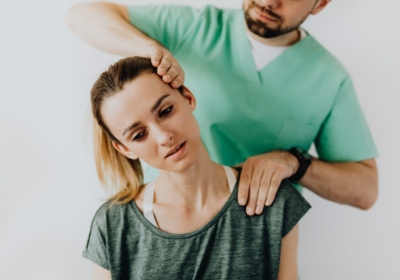Whether it’s stress, insomnia, work, or children keeping you awake, you may notice that there is less time for sleep, or that even when you do make time, you simply can’t stay asleep. Sleep is an essential part of our lives, and a consistent lack of sleep has been linked to an increased risk for many serious health conditions, including kidney disease, heart disease, diabetes, high blood pressure, and stroke.
Studies on how you can sleep better and how much you should sleep are constantly being conducted. In fact, the National Sleep Foundation recently concluded a rigorous study that determined new recommended amounts of sleep.
They concluded that adults aged 18 to 64 need seven to nine hours of sleep each night. If you’ve noticed that you’re sleeping less than the recommended amount, follow the tips below to fall asleep quickly and sleep through the night.
Get on a Schedule
Sleep is like every other part of your life: when you set aside a specified amount of time to focus on a specific task, the task is completed efficiently and easily. Not only does a regular schedule help you to focus, it also helps regulate your body clock.
After several weeks of falling asleep at the same time every night, your body will adjust and naturally fall asleep at that hour. For the first few days, don’t agonize over falling asleep right away. In fact, if you don’t fall asleep within 15 minutes, try and do something relaxing before attempting to go to bed again.
Create a Bedtime Ritual
To help you fall asleep, one of the most effective methods recommended is to create a routine. As you repeat the same actions before you fall asleep each night, your body will start to recognize them as indicators of sleep. Often, even if you aren’t tired before you start your bedtime rituals, your mind will associate the habits with feeling tired.
A bedtime ritual also has the added benefit of helping you relax after a long day. A simple routine can aid in stress management and clear a cluttered mind.
For a more rigorous ritual, start with a hot bath, read a book, and listen to some soothing music. After 30 to 45 minutes, you should start to feel tired—it’s an indication that your body is ready to sleep. For a shorter ritual, a 10 minute meditation session can be ideal.
Exercise Consistently
The benefits of exercise have been studied and proven many times over. Weight control, reduced risk for cardiovascular diseases, strong bones, and elevated moods are all associated with regular exercise. In fact, the effect of exercise on sleep has been studied since the 1960s. A study conducted by the State University of New York, Downstate Medical Center in 1966 definitively resolved that there was a positive association between exercise and slow-wave (delta) sleep.
Whether you’re exercising during the day or for a few minutes before bed, this surge of activity will help you to get a deeper sleep through the night.
Evaluate Your Room
Creating an environment conducive to sleep is an essential aid to people who struggle to fall asleep. There are several general tips that are beneficial for everyone, including keeping your room cool, ensuring minimal noise, and controlling light sources.
Drastic temperature changes alert your body to danger and cause you to wake up whenever your body feels too hot or too cold. For optimal sleep, your room should be around 65 degrees Fahrenheit.
A quiet space is obviously necessary for effective rest as well. Loud noises such as construction and neighbors, as well as pets who are awake at night, are distractions you cannot afford when trying to sleep. Consider using earplugs or white noise machines to drone out external sounds and help you to achieve deep rest.
Controlling the light in your room is important during both the day and nighttime as well. During the day, sitting in the sun helps you to wake up. During the night, try to avoid electronic devices, as the light they emit disrupts activity in the brain and keeps you awake longer.
Sleep Supplements
While many herbal supplements are helpful in treating sleeplessness, Ayurvedic natural remedies are preferred by many as they are 100% organic and have been found to be extremely beneficial. Ayurveda traces back to ancient India, where people used it as an effective herbal remedy for many symptoms.
Another interesting herb currently used in sleep aids is Ashwagandha. These herbs can reduce stress, which significantly improves sleep and helps to relax the body.
Ways To Get Back To Sleep
While all of these tips are meant to help you fall asleep, what happens when you wake up in the middle of the night? Most likely, if you follow these tips correctly, you won’t wake up. If you do, stay still in bed for several minutes and try to clear your mind of any thoughts. With the lights turned low and external stimuli toned down, you should be able to fall right back asleep.
Sleep is crucial to your daily function, so if you’re experiencing severe sleep issues, discuss your options with a doctor. They may recommend supplements or prescription medication to help you with your sleep deficiencies.







Recent Comments